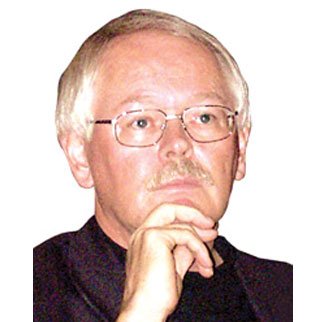
Fr. Ron Rolheiser
Ronald Rolheiser, a Roman Catholic priest and member of the Missionary Oblates of Mary Immaculate, is president of the Oblate School of Theology in San Antonio, Texas.
He is a community-builder, lecturer and writer. His books are popular throughout the English-speaking world and his weekly column is carried by more than seventy newspapers worldwide.
Fr. Rolheiser can be reached at his website, www.ronrolheiser.com.
Our gaze upon our city mirrors Jesus’ on Jerusalem
Jesus, it seems, had mixed feelings towards the world. He loved the world, laid down His life for it and challenged us to love the world, even as He criticized it harshly and stated clearly that it was opposed to Him.
Struggling for our father’s blessing
When I was in elementary school, we were made to memorize a number of poems by William Blake. We didn’t understand them, but they had a wonderful jingle to them, were easy to commit to memory and remain branded inside me to this day.
Hammarskjold, Merton and sexuality and desire
The lusts of the flesh reveal the loneliness of the soul.
Dying into safe hands
It’s hard to say something consoling in the face of death, even when the person who died lived a full life and died in the best of circumstances. It’s especially hard when the one who’s died is a young person, still in need of nurturing and care in this life, and when that young person dies in less-than-ideal circumstances.
A pilgrimage through nature, desire and soul
Nature, desire and soul, we rarely integrate these well. Yet they are so inextricably linked that how we relate to one deeply colours the others; and, indeed, spirituality itself might be defined as what we each do in terms of integrating these three in our lives.
Accepting truth, whatever its cloak
When I was a student in the seminary, I had two kinds of teachers: One kind, precisely because they were fiercely loyal to all that is Christian and Catholic, would have us read great secular thinkers but always with the intent of wanting to help show where these thinkers were wrong. Our intellectual task as Catholic seminarians, they would tell us, is to be able to defend Catholicism against the kinds of criticisms found in the writings of these secular, sometimes anti-Christian thinkers and to keep our own faith and teaching free of their influence.
God’s quiet presence in our life
The 12th-century Persian poet Rumi submits that we live with a deep secret that sometimes we know, and then not.
We need to share our riches with the poor
We need to give away some of our own possessions in order to be healthy. Wealth that is hoarded always corrupts those who possess it. Any gift that is not shared turns sour.
Resurrection reveals God as redeemer, not rescuer
Before you get serious about Jesus, first consider how good you are going to look on wood!
What dark nights do for us
After Mother Teresa died, her diaries revealed something that shocked many people. During the last 60 years of her life she struggled to imagine that God existed and had no affective experience of either the person or the existence of God. Yet, during all those years, everything in her life incarnated and radiated an exceptional, one-in-a-hundred-million selflessness, altruism and faith commitment.

